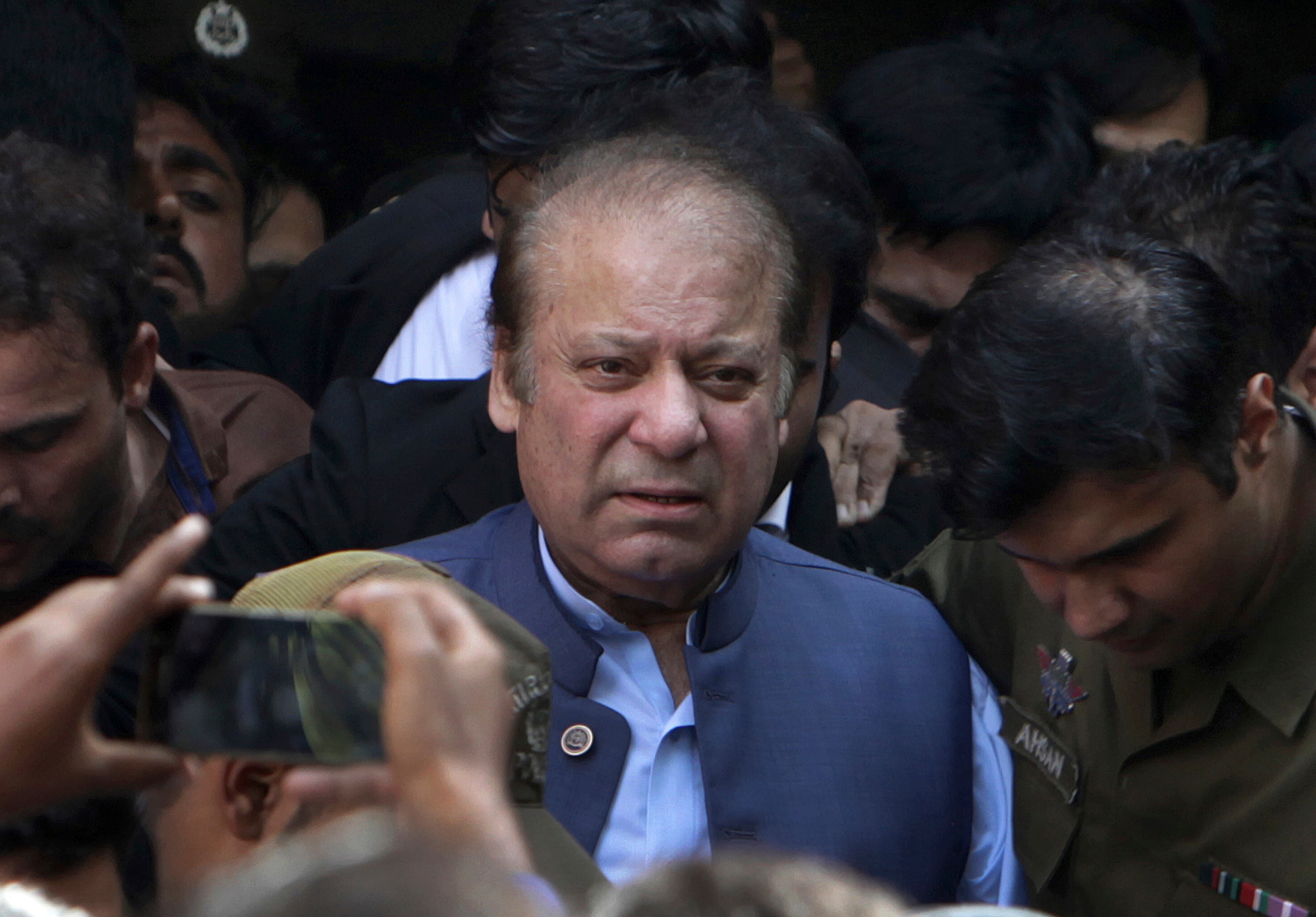Pakistan starts legal process for ex-PM Sharif's extradition
Pakistan’s information minister says Islamabad has started the legal process to reach an extradition treaty with Britain that would pave the way for the U.K. to hand over Pakistan's former Prime Minister Nawaz Sharif

Your support helps us to tell the story
From reproductive rights to climate change to Big Tech, The Independent is on the ground when the story is developing. Whether it's investigating the financials of Elon Musk's pro-Trump PAC or producing our latest documentary, 'The A Word', which shines a light on the American women fighting for reproductive rights, we know how important it is to parse out the facts from the messaging.
At such a critical moment in US history, we need reporters on the ground. Your donation allows us to keep sending journalists to speak to both sides of the story.
The Independent is trusted by Americans across the entire political spectrum. And unlike many other quality news outlets, we choose not to lock Americans out of our reporting and analysis with paywalls. We believe quality journalism should be available to everyone, paid for by those who can afford it.
Your support makes all the difference.Pakistan’s information minister said Friday that Islamabad has started the legal process to reach an extradition treaty with Britain that would pave the way for the U.K. to hand over former Prime Minister Nawaz Sharif
The development comes after a top Pakistani court earlier this month declared Sharif, who lives in self-imposed exile in London, a fugitive from justice for failing to return home to face additional corruption charges.
Information Minister Shibli Faraz told The Associated Press that it's the responsibility of British authorities not to allow “convicted criminals like Sharif” to remain there. Sharif was sentenced to seven years in prison in a separate case, for corruption and money laundering in 2018.
“We are trying, we have tried and we will try" to bring back Sharif, Shibli said in the interview.
Pakistan currently has no extradition treaty with Britain. There was no immediate comment from the U.K. on the development. The process will likely take years and could face stiff resistance in parliament.
Sharif's Pakistan Muslim League party is currently holding nationwide rallies demanding Sharif's successor, Prime Minister Imran Khan step down by the end of the month over alleged bad governance and failing to improve the country's economy.
Khan refuses to resign, and the opposition has vowed to walk out of parliament and provincial assemblies in 2021 to force early mid-term elections. Khan says the elections would be held — but only to fill seats vacated by opposition members.
The 70-year-old Sharif, who ruled the country three times as prime minister, fell from grace after the country’s Supreme Court ousted him from office over corruption allegations in 2017. Pakistani authorities in November 2019 temporarily released him on bail amid deteriorating health so that he could travel and seek medical treatment abroad. At the time, another court permitted Sharif to leave the country for four weeks, with the option to extend the time abroad if he was not able to travel afterward.
Sharif’s bail later expired and authorities subsequently issued arrest warrants for him.
In 2018, Sharif was sentenced to seven years in prison for corruption and money laundering. That case was separate from the one pending against Sharif. He has also appealed against his conviction and the Islamabad High Court is now to decide how to handle the appeal in Sharif’s absence.
Sharif's party lost the elections in 2018, a vote that saw popular former cricket player Khan become the premier after his party narrowly won parliament majority. Khan has said he wants Sharif brought back to Pakistan for trial.
Faraz said Sharif's family had initially threatened the authorities that “if something happens to him, we will be responsible."
“We did not want to take on the responsibility and we did not want to show that this was a personal case or that it was (an issue of) personal enmity," Faraz said.